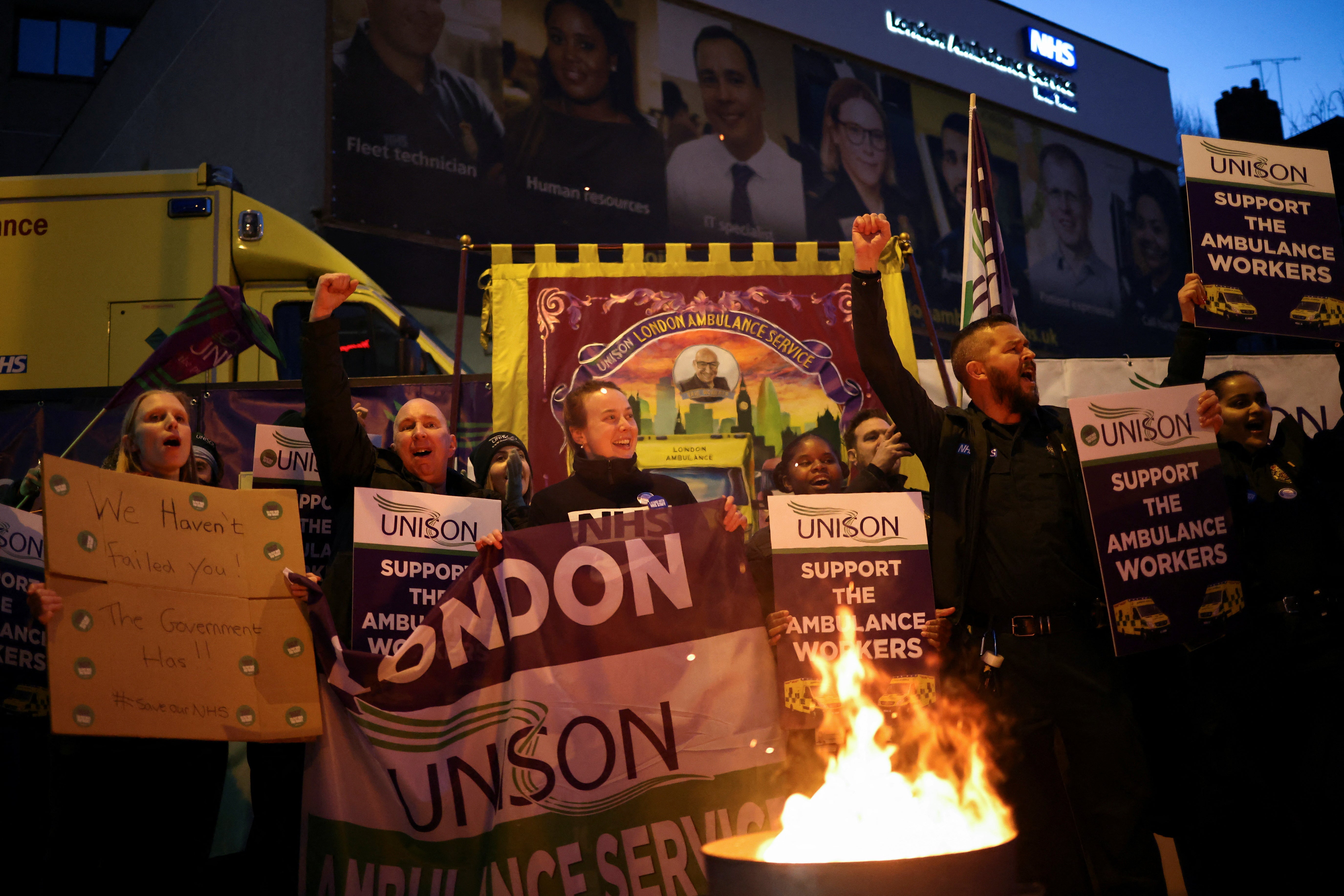The blame game has shifted on strikes – and it’s the government, not the unions, in the firing line
Editorial: It would be bad enough for Sunak if the public blamed the Tories, rather than Labour, for the strike action over Christmas. But the reality is even worse

Today’s poll in The Independent makes extremely unpleasant reading for the prime minister. Rishi Sunak already faces an extraordinarily long list of enormous – arguably intractable – problems. Striking workers have historically ridden to the accidental rescue of Tory governments, or helped to sink Labour ones, when easy politics has allowed Conservatives to blame industrial action on hardline trade union officials, and – by association – on the Labour Party.
It would be bad enough for Rishi Sunak if the public merely blamed the government, rather than Labour, for the ongoing strike action over the Christmas period, but the reality is worse. The public support the strikers.
A Savanta poll found that almost two in three voters (63 per cent) would back NHS nurses taking more strike action next year if their pay demands are not met. In the private sector, strike action is meant to strong-arm bosses into improving pay and conditions by harming their business. In the public sector, NHS staff are voting to temporarily worsen public services, and the public clearly support them.
Mr Sunak’s various political and media outriders have already done their best to agitate against doctors and nurses, to seek to turn the public against them. But the public are not being turned. They continue to blame the government, and continue to back workers in what they consider to be reasonable demands for better pay and conditions. Further, they appear to be willing to endure the effects the strikes are having on them in order to help further these ends.
The poll also shows that a clear majority of voters support more strike action by rail staff, bus drivers, postal workers and teachers, despite the obvious impact such strikes will have on their lives.
It is a seismic shift. Train and Tube strikes have a tendency to turn even the most moderate left-wingers into neo-Thatcherites (especially in London, where a far higher percentage of people commute by train than elsewhere in the country). For years, decades even, frequent shutdowns of the Tube network have been successfully – and not altogether unfairly – characterised as already well-paid Tube drivers extracting more public money by holding a busy working city to ransom.
But that is simply not happening this time. Rising inflation and crippling bills have meant that the miserable feeling of being unable to get by has become almost ubiquitous.
The calculus of sympathy has changed. The blame game has shifted. The quicker the government works out that this leaves it with only one option – namely to negotiate, and ultimately to improve on the offers it has thus far made – the better.



Join our commenting forum
Join thought-provoking conversations, follow other Independent readers and see their replies
Comments